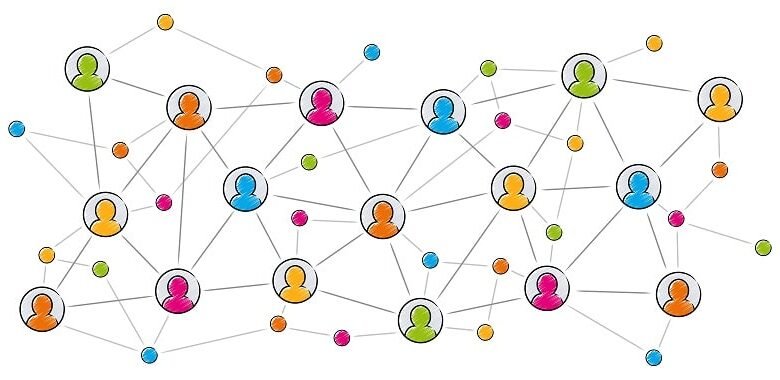Connections: The Invisible Threads That Shape Our Lives

In our fast-paced, screen-saturated world, the word “connections” gets thrown around a lot. From social media “friendships” to professional networking events, everyone seems obsessed with staying “connected.” But what does connection truly mean? Is it just about likes, followers, and Zoom calls, or is there something deeper that we’re craving?
The truth is, human beings are hardwired for connection. It’s what helps us grow, evolve, and even survive. Whether emotional, digital, intellectual, or physical, connections influence nearly every area of our lives—from our health to our happiness, our careers to our creativity.
Let’s unpack what connections really are, why they matter, and how to build ones that genuinely make a difference.
The Human Need for Connection: It’s More Than Just Socializing
It might seem like a cliché, but the idea that “humans are social animals” is rooted in science. We need more than just food and shelter to thrive—we need emotional and social bonds.
Connection Is Part of Our Biology
From birth, humans are wired to connect. A newborn baby literally cannot survive without human touch and attention. As we grow, the need for emotional bonding stays strong. Oxytocin, often called the “love hormone,” gets released when we hug, laugh, or even share a deep conversation. That chemical connection is nature’s way of rewarding us for forming bonds.
Studies have consistently shown that people with strong social connections live longer, have lower rates of anxiety and depression, and even recover faster from illness. Being alone too often, on the other hand, can be as harmful to your health as smoking 15 cigarettes a day. No exaggeration.
Quality vs. Quantity: Not All Connections Are Equal
In an age where it’s easy to have 500+ “friends” on Facebook, it’s important to make a distinction: not all connections nourish us. In fact, having too many shallow relationships can leave us feeling more isolated than ever. True connection goes beyond small talk and emoji reactions.
It’s about feeling seen, heard, and valued. Even having one or two genuine connections can be more beneficial than dozens of surface-level ones. Think about it: wouldn’t you rather have one friend who truly understands you than ten who only respond with “LOL” when you open up?
Emotional Safety and Belonging
One of the greatest gifts a strong connection offers is a sense of emotional safety. In a world full of judgments and stress, knowing you can turn to someone who won’t criticize or dismiss you can be incredibly powerful. This is especially important during times of grief, failure, or self-doubt.
When we feel like we belong somewhere—be it a family, a community, or a team—we become more resilient, more confident, and even more creative. It’s no coincidence that the most innovative organizations are the ones where employees feel connected and valued.
Digital Connections: Are We More Connected or More Alone?
Let’s face it: we live in a digital age. Most of our connections now happen through screens—text messages, video calls, likes, comments, DMs. And while these tools have undeniable benefits, they also come with some pretty big downsides.
Social Media: The Double-Edged Sword
On one hand, platforms like Instagram, Twitter (or X), and LinkedIn allow us to maintain relationships across distances. We can reconnect with old classmates, follow inspiring creators, or join niche communities we’d never find offline.
But on the flip side, these connections can often feel… empty. Scrolling through curated highlight reels can lead to comparison, envy, and FOMO (fear of missing out). We might be technically connected, but emotionally, we’re not. That’s the paradox.
What’s worse is that social media can create a false sense of intimacy. Just because you know what someone ate for breakfast doesn’t mean you actually know them. And the constant dopamine hits from likes and notifications? They’re addictive, not fulfilling.
Texts and Emojis: Miscommunication Central
Ever had a message misunderstood because tone didn’t come through in text? You’re not alone. While texting is convenient, it strips away the non-verbal cues—like body language and voice tone—that make up a huge part of communication.
An emoji can’t replace a hug. A “k” reply can ruin someone’s day. We need to remember that digital connections are tools, not replacements for real interaction.
When Digital Becomes Meaningful
That said, not all digital connections are bad. In fact, many people find life-changing friendships, mentorships, or even love online. The key is intentionality. Are you using these platforms to truly connect, or just to distract yourself? Are you scrolling to numb, or are you engaging with purpose?
When used wisely, technology can be a bridge—not a barrier—to deeper human connection.
Professional Connections: The Power of Networking With Authenticity
We often hear that “your network is your net worth.” And while that might sound like a business cliché, there’s truth to it. Career growth, opportunities, and collaborations often come down to who you know, not just what you know.
From Networking to Relationship-Building
Many people treat networking as a game—handing out business cards, collecting LinkedIn connections, attending events just to be seen. But that’s not true connection. The goal shouldn’t be to rack up contacts, but to build real professional relationships based on mutual respect and shared interests.
Start by being curious. Ask thoughtful questions. Offer value before expecting anything in return. The most meaningful professional connections often start with a simple, authentic conversation—not a pitch.
Mentors, Peers, and Sponsors
There are different types of valuable connections in your professional life. Mentors guide you, offering advice and wisdom from experience. Peers provide camaraderie, collaboration, and mutual growth. Sponsors actively advocate for you and open doors.
Surrounding yourself with a healthy mix of these connections can turbocharge your personal and career development.
Networking in the Remote Work Era
As more workplaces go hybrid or fully remote, building connections takes extra effort. But it’s far from impossible. Joining virtual meetups, engaging in industry communities, and even reaching out via email or social media can help you stay plugged in.
The secret? Don’t treat it like a transaction. Treat it like a conversation.
Spiritual and Philosophical Connections: Tapping Into Something Greater
Not all connections are with people. Some of the most profound connections are the ones we have with ourselves, with nature, or with a higher power—whatever that means for you.
The Connection to Self
Many of us go through life disconnected from ourselves. We suppress emotions, ignore gut instincts, and live on autopilot. But developing a deeper connection with your inner world—your thoughts, values, and feelings—can transform your life.
Journaling, meditation, therapy, or even solo travel can help you reconnect. When you know yourself better, you make better choices and create deeper relationships with others.
Nature: The Original Connection
Spending time in nature has been shown to reduce stress, improve focus, and boost happiness. There’s something grounding about sitting under a tree, watching the ocean, or hiking in the mountains. It reminds us that we’re part of something bigger—and that our problems, while real, are not the whole picture.
In a world that constantly demands productivity, nature offers presence.
The Search for Meaning
Whether through religion, spirituality, or philosophy, many people seek a connection to something greater. It might be God, the universe, karma, or simply a sense of purpose. These connections help people find meaning in hardship, joy in simplicity, and direction in chaos.
You don’t need all the answers to feel connected. Sometimes the search itself is the connection.
Final Thoughts: Real Connections Make Life Worth Living
At the end of the day, connections are what give life depth. The laugh you share with an old friend, the stranger who holds the door, the mentor who believed in you, the late-night talk with your sibling, the quiet walk in the woods—these are the moments that matter.
Building true connections takes effort. It requires vulnerability, presence, patience, and sometimes even heartbreak. But it’s worth it. Because no one looks back on life and wishes they’d spent more time alone, scrolling.
So take a deep breath. Send that message. Ask that question. Share that story. Because on the other side of that brave moment, there might just be the connection you didn’t know you needed.



